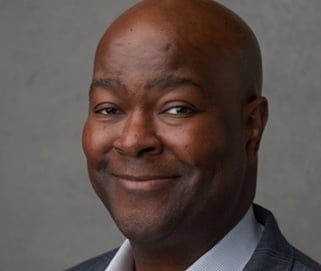All credit unions need talented people in every position. But having outstanding staff members is not enough. Leaders at all levels have to be coached in a way that boosts current performance and develops leadership.
As CEO of CUES, I’m focused on two major efforts: 1) building the business—that is, advancing CUES toward its mission to educate and develop credit union CEOs, directors and future leaders; and 2) building organizational capacity, or the organization’s ability to take on more. Talent development is key to this, including increasing leadership bench strength, adding capabilities and expertise, and making the organization as efficient as possible.
My thinking about building organizational capacity has been fed recently by Six Conversations: A Simple Guide for Managerial Success by Steve King, whom I know through our volunteer work in support of Madison’s Goodman Community Center. King is executive director of the University of Wisconsin-Madison’s Center for Professional and Executive Development.
In his book he shares a simple but important premise: It’s important not to get bogged down by tools focused on talent development—such as your credit union’s performance annual review program.
Rather than a once-a-year evaluation, King writes, what really develops talent is ongoing conversations that focus on these six questions.
- What is expected of me?
- What and how should I develop?
- How am I doing (on the project I have in the works right now)?
- How did I do (on the last project I completed)?
- How will I be rewarded?
- What is next for me?
According to King, conversations drive the performance process. Notably, the person being coached—and the coach—can be at any level of the organization, including on your board of directors.
At CUES Symposium: A CEO/Chairman Exchange earlier this year, we featured speaker Michael Bungay-Stanier, who underscored the importance of coaching conversations. In fact, he went so far as to advise coaches to stop talking and start listening.
Coaching is such a vital leadership skill that it’s part of the CEO Institute III: Strategic Leadership Development curriculum. Attendees learn about their personal leadership style and how to use it to bring out the best in others through such sessions as “Creating Value Through Critical Conversations” and “Leading High Performance Teams.”
It’s wonderful, but not enough, to have CUES’ session presenters talk about coaching. CUES also coaches its presenters to stop talking well before a session is officially over so they can listen to attendees talk about what they’ve learned and help them formulate custom takeaways to put to work at their credit unions on Monday. We also bring in professional coaches to work with attendees at some of our events.
I’ve had some great coaches and mentors throughout my career. When I started working, employees needed to know everything about their particular job—lock, stock, and barrel. Today, if you don’t know something, you are expected to say you don’t know it, commit to learning it and deliver the answer back. This emphasis on humility and authenticity is important to have in mind as you have today’s coaching conversations, especially when working with millennial talent.
Go forth and coach!








